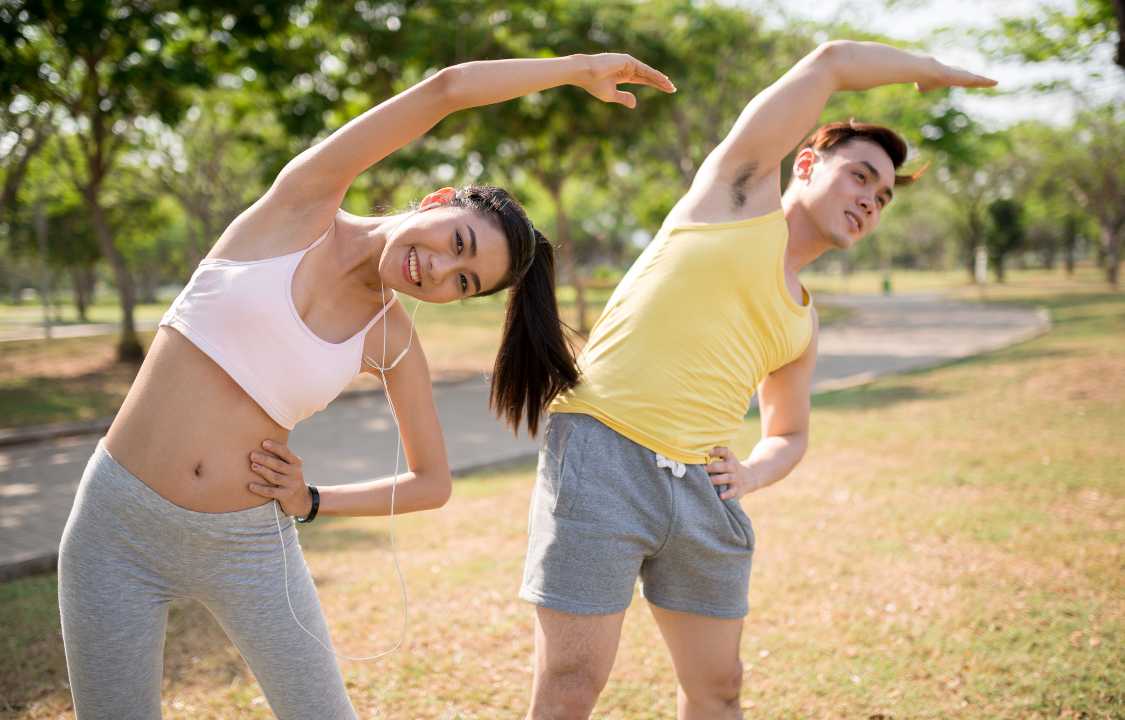Anxiety, Health Benefits, Health Care, Mental Health
Research-Backed Exercises That May Help Reduce Anxiety
Your body plays a bigger role in your mental health than you might think. These exercises may provide some relief from anxious feelings.
Anxiety, a common mental health condition, can significantly impact a person’s well-being and quality of life. In moments of anxiety, the last thing one might want to do is engage in physical activity. However, emerging research highlights the profound connection between physical and mental health, suggesting that exercise can be a valuable tool in managing anxiety.
Dr. Ben Michaelis, an evolutionary clinical psychologist and author, asserts that the traditional separation of body and mind is fundamentally flawed. He emphasizes that self-care involves addressing both aspects, as they are interconnected in a complex system. When we prioritize our physical well-being, we are, in turn, supporting our mental health.
How Exercise Alleviates Anxiety
Recent studies, such as a 2021 review in Frontiers in Psychiatry, suggest that exercise exerts a dual influence on mood by combining physical and psychological effects. It has been shown to induce changes in the brain, particularly in regions responsible for regulating the body’s stress response. While exercise initially increases stress hormones like cortisol and epinephrine, these hormone levels subsequently decrease after physical activity, potentially leading to reduced feelings of stress. For individuals diagnosed with anxiety disorders, exercise can complement conventional treatments like anti-anxiety medications and cognitive-behavioral therapy.
Moreover, there is emerging evidence that exercise may serve as a preventative measure for anxiety disorders, as proposed by researchers in the 2020 book “Physical Exercise for Human Health.” While further research is necessary to solidify these findings, it underscores the potential therapeutic value of exercise.
The Most Effective Exercises for Anxiety
Exercise offers a broad range of benefits for mental health, and even small amounts of physical activity can yield immediate improvements in anxiety symptoms for adults. While nearly any form of exercise can be beneficial, certain types of exercises have shown particular promise in alleviating anxiety.
1. Cardiovascular Exercise: You need not be an elite athlete to reap the mental health benefits of exercise. Any form of physical activity that enhances the efficiency of oxygen delivery to muscles during workouts can reduce anxiety. This includes activities like running, swimming, biking, or even brisk walking.
- A study published in the journal Cognitive Behaviour Therapy in 2015 investigated the effects of a single bout of aerobic exercise on individuals with varying levels of anxiety. Participants were divided into two groups: one engaged in aerobics, while the other performed stretching exercises. The results revealed that those in the aerobic exercise group experienced short-term reductions in anxiety sensitivity.
- For enthusiasts of running, this activity triggers lasting changes in neurotransmitters like serotonin and norepinephrine, which contribute to improved mood both during and after exercise. Additionally, running can facilitate better sleep, a factor that promotes overall mental well-being by enhancing mood, reducing stress, and sharpening cognitive function.
- It is essential to consult a healthcare professional before starting any exercise regimen, especially if you have preexisting health conditions. Government guidelines recommend that most adults aim for 150 to 300 minutes of moderate-intensity exercise per week, depending on their fitness level.
2. Interval Training: High-intensity interval training (HIIT) is a form of exercise that involves alternating between high-intensity exertion and recovery periods. Small-scale studies have shown HIIT to be effective in reducing anxiety symptoms.
- Spanish researchers conducted a study during a COVID-19 lockdown, where participants engaged in home-based exercise. They compared two groups: one performing HIIT and the other engaging in moderate-intensity aerobic exercise. After six weeks, both types of training led to reductions in anxiety and stress.
- Another study from Germany examined HIIT as a treatment for anxiety disorders. People with generalized anxiety disorder were randomly assigned to high-intensity or lower-intensity training. Results indicated that HIIT was approximately twice as effective in reducing anxiety symptoms.
3. Nature Walks: The therapeutic benefits of physical activity in natural settings are gaining recognition. Spending time in nature has a calming effect on the mind, according to Dr. Ben Michaelis.
- A study published in Landscape and Urban Planning in 2015 revealed that young adults who went on a 50-minute nature walk reported reduced anxiety and improved memory function.
- Additionally, the concept of “forest bathing,” or walking in lush, green environments, has been suggested to alleviate anxiety symptoms, as highlighted in a 2021 review in the International Journal of Environmental Research and Public Health. However, it is worth noting that these benefits may primarily pertain to “state anxiety” (the anxiety experienced in response to a specific threat) rather than generalized anxiety.
4. Yoga: Yoga is generally considered safe and may be helpful in managing anxiety related to challenging life situations, as stated by the National Center for Complementary and Integrative Health (NCCIH). While it may not replace primary treatments for anxiety disorders, yoga can serve as an effective complementary approach.
- A 2021 study published in JAMA Psychiatry involved 226 adults diagnosed with generalized anxiety disorder. Participants were randomly assigned to 12 weeks of Kundalini yoga, cognitive-behavioral therapy (CBT), or stress management education (the control group). While CBT provided longer-lasting benefits, both yoga and CBT were found to improve anxiety symptoms. Yoga, in particular, places a strong emphasis on controlled breathing, which can help calm the mind.
In conclusion, whether you seek non-pharmaceutical strategies for managing anxiety or wish to incorporate exercise into your existing treatment plan, physical activity offers a promising avenue for relief. It is important to remember that exercise, whether vigorous or gentle, can significantly contribute to improved mental health, all while promoting physical well-being. So, next time anxiety strikes, consider lacing up those running shoes, embarking on a nature walk, or unrolling your yoga mat for a healthier, happier you.

